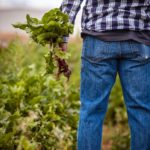 We all like to feel appreciated for the work we do, none more so than farmers, and a new study from the University of Exeter shows how a general lack of public appreciation can fuel loneliness in the profession.
We all like to feel appreciated for the work we do, none more so than farmers, and a new study from the University of Exeter shows how a general lack of public appreciation can fuel loneliness in the profession.
The researchers conducted detailed interviews with farmers, who reported regularly feeling undervalued and that there was a wide chasm between farmers and society more broadly, with this contributing to a lack of genuine understanding from the public about the role farmers play and the pressures they face.
“Cultural loneliness refers to feelings that arise from a sense of difference with others in the wider community—including feelings of being an outsider or being misunderstood by other cultural groups,” the researchers explain. “It’s concerning to see that this type of loneliness repeatedly emerged in participants’ stories, with many farmers describing or alluding to a strong sense of disconnection with the wider public, and of feeling undervalued and misunderstood by Government and society.”
A lonely profession
Many respondents said they not only felt lonely but were also subjected to abusive behavior. The changing nature of the rural communities farmers are central to means that many reported not feeling as though the community was friendly towards them anymore.
They also expressed a clear desire for the public to have a better understanding of the crucial role they have in producing the food we perhaps all take for granted. What’s more, they also highlighted their role as custodians of the environment. They feel these kinds of stories are often not told by the media, so the public remain oblivious to them.
“The issue of the sense of disconnection between farming and non-farming people has come up repeatedly in our research over a number of years,” the researchers explain. “We now know that the loneliness and isolation that can stem from this impacts the mental health of farming people. Farming people are key workers and we should all have a stake in helping improve their health and well-being.”
Time for change
The researchers provide a number of recommendations for improving matters and strengthening the bond between farmers and the wider public. These include:
- enhancing opportunities for community engagement with agriculture
- improving public dialogue in relation to food and farming
- promoting local food networks that facilitate more direct relationships between producers and consumers
- a more positive and empathetic approach from the government and regulators when it comes to shaping and enforcing policy and legislative requirements, particularly since associated paperwork and inspections have long been identified as key sources of stress for farmers
“All of us rely on farmers three times a day. Sadly, many people particularly in urban environments have very little exposure to farming, and as a result often a limited understanding of the challenges involved and the hard work and long hours that are required to ensure food is produced for the country and to a high standard,” the researchers conclude.
“We hope that the findings of this study will help to encourage people to appreciate their local farmers more and to be more aware of what is involved in farming—helping to bridge the gap between farmer and non-farmer, and rural and urban environments.”